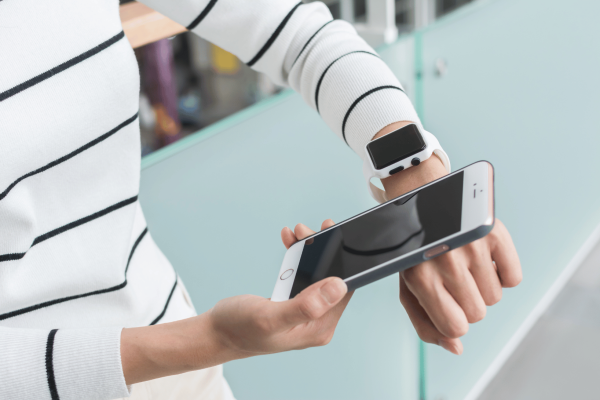A paradigm shift is occurring in the clinical trials industry surrounding mobile technology, or more specifically, mobile health (mHealth) following the COVID-19 pandemic. Organizations are beginning to recognize the power mHealth has to positively affect their clinical trials and are implementing technologies at an increasing rate. A survey representing pharma, CROs, and service providers around the world indicated more than two-thirds (68%) of those who currently use mHealth in clinical trials use mobile apps.
Here at CDS, we’ve long envisioned the mobile app as an end-to-end solution, encapsulating integral functions from electronic patient-reported outcomes (ePRO) and electronic data capture (EDC) to clinical trial management system (CTMS) and randomization and trial supply management (RTSM). A mobile-forward approach to clinical trials affords many advantages that cannot be realized with other modalities. Among the many ways mobile apps can advance research, here are six benefits we’ll expect to see in 2021 and beyond:
Here at CDS, we’ve long envisioned the mobile app as an end-to-end solution, encapsulating integral functions from electronic patient-reported outcomes (ePRO) and electronic data capture (EDC) to clinical trial management system (CTMS) and randomization and trial supply management (RTSM). A mobile-forward approach to clinical trials affords many advantages that cannot be realized with other modalities. Among the many ways mobile apps can advance research, here are four benefits we’ll expect to see in 2018 and beyond:
Reduced study duration
Leveraging mobile technology can streamline a clinical trial timeline from beginning to end. An easy-to-use, intuitive native app for data collection and study management will make quick work of assigning roles, configuring study workflow, defining query management and randomization, and creating electronic case report forms (eCRFs). As data is gathered, the source data verification process is drastically shortened with the elimination of paper case report forms.
Studies which utilize electronic patient-reported outcomes, or ePRO, allow researchers to effectively gather the valuable data study participants provide when completing eCRFs and surveys within a mobile app. The ability to activate alerts when a participant submits an eCRF lets researchers collect data in near real-time and begin managing and analyzing the data as it comes in.
Greater data security
Many in the life sciences industry have an apprehension with mobile technologies for clinical trials: data security and participant verification. But most people don’t know that native mobile apps offer greater security than web-based apps. For example, biometric technologies (Face ID and Touch ID) can be utilized to authenticate participants and study staff. This provides 1024 bit encryption that is not possible with paper-based collection methods or simple password data encryption. Encryption coupled with data transmission and storage in a cloud-based platform offer the ultimate means of securing clinical data.
Improved study enrollment and retention rates
Native mobile apps can also aid research teams in achieving greater participant recruitment and retention. Mobile technology now makes virtual, app-based visits and follow-up appointments a reality, reducing the need for site visits and saving time for both researchers and participants. Research teams can schedule push notification reminders to participants to encourage completion of eCRFs and surveys, treatment adherence, etc. to reduce study drop-out. It’s a direct line to clinical trial participants.
Enhanced user experience
In this digital age, people have growing expectations regarding the user experience (UX) and user interface (UI) in the technologies they use. People today are accustomed to performing daily tasks (banking, shopping, reading, and more) on their phones using apps with familiar, intuitive gestures. The same technology can – and should – be applied to clinical trials.
But how does this work? Simply put, native apps are installed directly onto a mobile device, coded in programming language specific to the device’s operating system, and designed for the mobile interface which creates a faster, smoother, and more enjoyable experience. Users are able to leverage all the capabilities of the phone in a clinical trial, such as biometric technologies, swiping and tapping gestures for navigation, ability to upload media easily, eSignature, and more. With this, we can elevate and simplify the clinical trial experience for research professionals and participants.
More accurate data
Data collected via mobile app is arguably cleaner and more objective than traditional methods in clinical research. Not only does it remove human error and bias from the clinical trial process, it can also add a level of standardization through the implementation of validated eCRFs.
Within eCRFs, users are now able to take advantage of the latest in mobile health (mHealth) technology to collect objective data, including the features with which smartphones are equipped: geo-positioning, accelerometer, gyroscope, HealthKit features, microphones, and cameras. mHealth is also synonymous with wearables: Apple Watch, Android Watch, FitBit, and other activity trackers, patches, jewelry, clothing, and more. As mHealth technologies continue to become more sophisticated, the array of usable data that can be collected directly into a clinical trial expands.
App-based studies may also be configured to send out customized notifications for any event or response entered in a study – an especially helpful feature for rapid visibility on adverse events. This indirectly makes a study safer for participants and allows for better outcomes.
Power behind Big Data
As it continues to surge in popularity, app-based clinical research has the potential to generate an unprecedented quantity of data. In an article published in Frontiers in Oncology, the potential positive impact of Big Data in clinical research is discussed: “Only a fraction of collected trial data are used and published. The data could, however, be utilized to perform sub-studies or can be merged to acquire new insights for clinical day-to-day life…less animal testing and patient recruitment in pharmaceutical or other trials would be needed. Especially, research in the area of highly rare conditions would benefit. Instead of using the hard road of recruiting a huge number of patients to gather valid results, computer simulations can accompany trials in rare tumors or diseases.”
Although there are a few hurdles that must be overcome before mHealth fully proliferates the industry, mobile app-driven studies will inevitably play a pivotal role in clinical research. As more organizations prepare to adopt new technology, we’re excited to offer a fully-featured data collection and study management app, TrialKit, that puts these capabilities – and many more – in the hands of research professionals everywhere. TrialKit’s mobile app performs the same ePRO & eConsent, EDC, and RTSM, functions as its web browser companion. To see how TrialKit can accomplish quicker, more cost-effective studies for research teams of all sizes, contact us today to request a live product demonstration.




